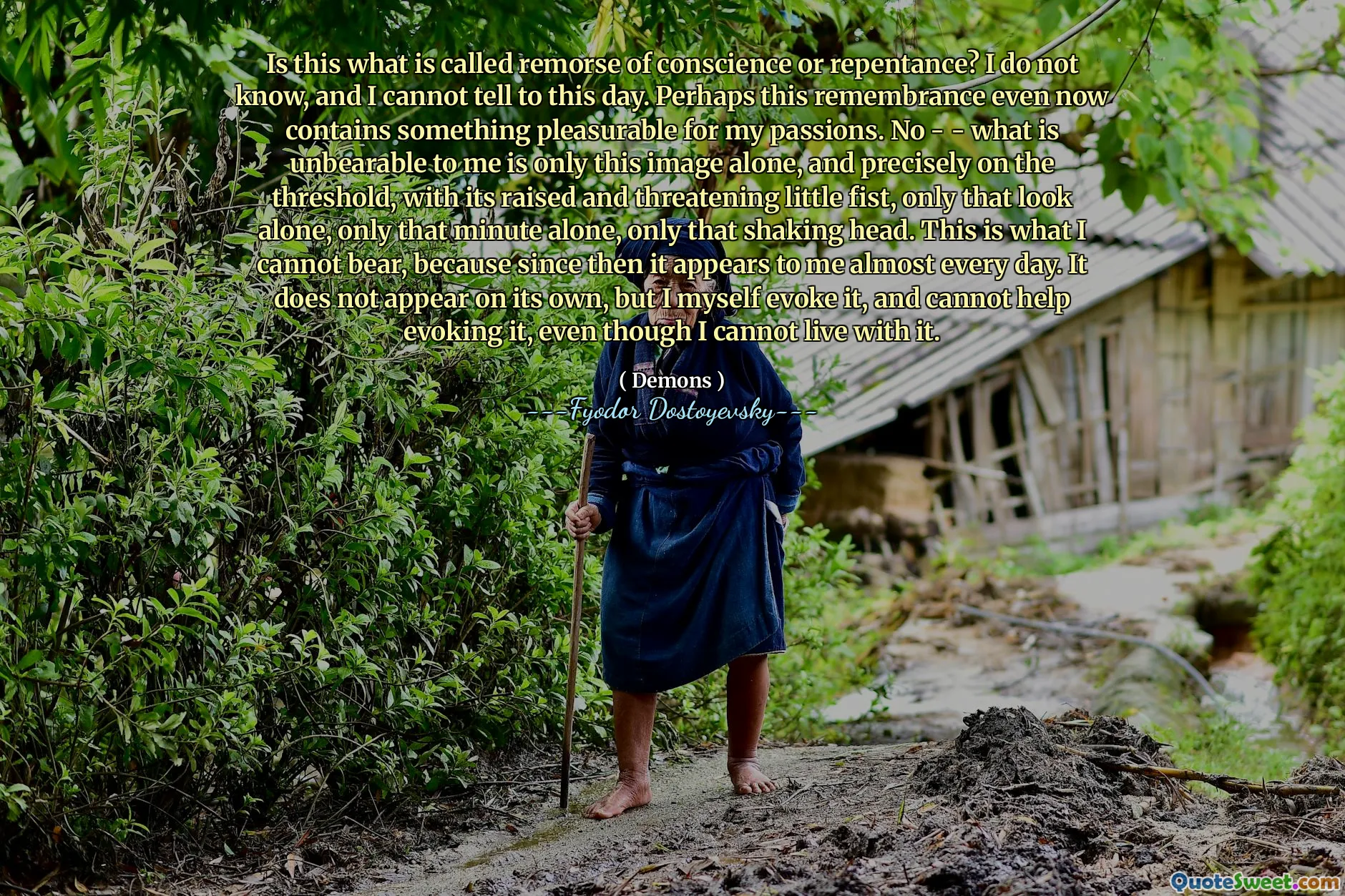
Is this what is called remorse of conscience or repentance? I do not know, and I cannot tell to this day. Perhaps this remembrance even now contains something pleasurable for my passions. No - - what is unbearable to me is only this image alone, and precisely on the threshold, with its raised and threatening little fist, only that look alone, only that minute alone, only that shaking head. This is what I cannot bear, because since then it appears to me almost every day. It does not appear on its own, but I myself evoke it, and cannot help evoking it, even though I cannot live with it.
[This quote delves deeply into the human experience of guilt, remorse, and self-punishment. The speaker struggles with the persistent presence of a haunting memory, symbolized by a threatening fist and an accusatory look—perhaps a manifestation of conscience or guilt. The speaker’s recognition that they may find a paradoxical pleasure in recalling such memories reveals the complex relationship humans often have with their own culpability; sometimes, feelings of guilt become intertwined with a strange form of satisfaction or validation. Yet, what causes the greatest torment is the image they cannot escape—an undeniable symbol of their remorse—and the internal compulsion to conjure it again and again. It illustrates the delicate and often painful battle within the human psyche: between the desire to forget and the compulsion to remember, especially when remorse is involved. This oscillation reflects the moral struggles that define much of human inner life, where conscience both torments and guides us. The quote underscores how guilt, when unresolved, can become a perpetual cycle of self-awareness and self-punishment, preventing peace and acceptance. It evokes the universal challenge of forgiving oneself and moving beyond past mistakes, especially when these memories keep returning in intrusive ways, shaping one’s identity and emotional well-being. The imagery and emotional depth remind us of the profound internal conflicts that define conscience and moral remorse, making it a powerful reflection on human vulnerability.]







